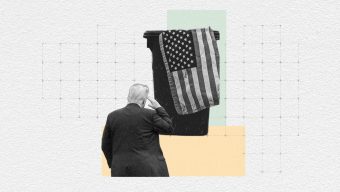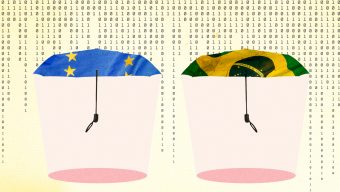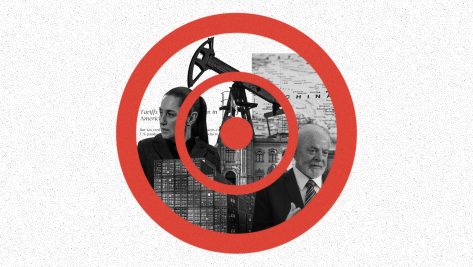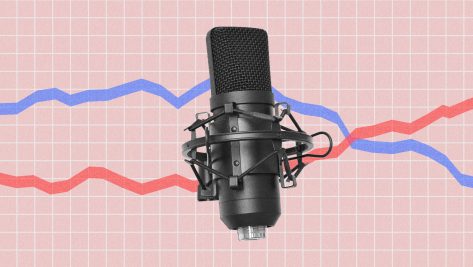Margrethe Vestager on Europe’s Digital Model
Margrethe Vestager, Executive Vice-President of the European Commission for a Europe fit for the Digital Age, speaks to Manuel Muñiz, Provost of IE University, about regulating the digital market, governing social media, and the global innovation race.
© IE Insights.
Transcription
Manuel Muñiz: Hello, everybody, it’s wonderful to be here and it’s wonderful to welcome Margrethe Vestager, the Vice President of the European Commission, she’s Vice President for a Europe fit for the Digital Age. It’s a wonderful time to be having a conversation on the state of digital Europe and the challenges we face. Is Europe fit for the digital age? What are the challenges that Europe faces in the competition, economic and otherwise, and normative and political, that it faces from other countries and other regions of the world?
Margrethe Vestager: Maybe I think about it a bit the other way around. So not for us to be fit for technology, but for us to use technology because we have societal challenges of inequality, health system access. We have broad questions of fighting climate change, issues of competitiveness. So the important thing is for Europe to be able to master technology, to use it in a better way than what we do.
MV: And we are making progress in terms of investments, connectivity, there is investment in connectivity all over Europe, investment in sort of common goods, high-performance computing. Now, of five out of the world’s best, two is in Europe, the third will soon be in Europe too, because that would be the one in Spain. We invest in in skills. That is one of the big stumbling blocks. If there are not sufficient basic skills and not expertise, if not more women are being drawn in to think that technology is something that one should passionately care about.
MV: And last but not least, we have in our democracies made the rules: Digital Markets Act, the Digital Services Act, so that the market is open and that social service platforms are not undermining neither our democracy nor the safety of each and every one of us.
MM: What’s your assessment of the higher education landscape in Europe and its capacity to contribute to making Europe fit for the digital era? Are we training people in the right set of skills, of knowledge? Are we serving sufficiently as transfer mechanisms of innovation and research into society, into entrepreneurship? What’s your assessment? And you were Minister of Education as well of Denmark back in the day, so are there pending issues there for us?
MV: I think European universities have accepted the challenge, but I don’t think that the results are still sufficiently there because technology and digital needs to be integrated in everything we do. Technical universities will do their job, but it needs to be also where you learn agriculture, where you learn business, where you learn sociology, where you learn about literature. It needs to be everywhere because everything digitalizes, and here I think we still have a way to go.
MV: And I would love for us to have sort of a testing approach that we allow ourselves to fail and create a culture where it’s okay that you don’t know everything beforehand. And I think that is actually also a true university value because that is also the starting point of research.
MM: Of course, and of inquiry. On the regulation piece. So the EU has put out two major pieces of regulation of the tech and the digital space, the Digital Services Act, and the Digital Markets Act, they’re coming into force. What would you say are the key components, and why are these pieces of legislation advancing the interests of European citizens, which at the end of the day is what they’re there to do.
MV: The Digital Markets Act will open the marketplace. Right now, if you want to attract an investor for your businesses to scale up, very often the investor will ask you: “who do you depend on in order to get to your customers?” And if that is one of the big tech companies, the investor may be a bit reluctant because then it’s not up to you to be successful.
MV: So for the market to open for big tech to take a step back, not to promote themselves, not to demote you, to share data, to make sure that new competitors can emerge, that would serve as well for businesses, for job creation, for fairness in the marketplace. And the Digital Services Act will make everything that takes place online more reflecting what we also expect offline.
MV: If you buy something on the main street, you expect that if something is wrong, you can go back and you can get your money back or you can get it repaired. The businesses you deal with online, that they will be of the same nature, they have not just disappeared or cannot be found or whatever. But it’s also very important that freedom of speech is preserved, while things that we have decided to be illegal, like hate speech against minorities, incitement to terrorism, children being abused, so that services provided for us that they are simply safer.
MM: How are we going to regulate and govern social media platforms? And part of the answer is in these pieces of legislation, at least this is how Europeans feel that these spaces, as well for public debate and public discussion, are safe and they attach to truth.
MM: I had a question. One of your portfolios, of course, is you’re the Commissioner for Competition. In the digital space, do you see particular challenges to the digital economy in the competition and antitrust space? Are there issues there with the price signaling not working properly, network effects, the scale effects that make, that force us to rethink or to recalibrate or to sophisticate the way we interpret the current frameworks or even innovate on the current competition and antitrust frameworks.
MM: And the question is important because we have these enormous actors occupying very important market shares in key markets. And if we don’t get this right, this will stifle the innovation economy and have also effects in the distribution of salaries and ultimately in the cost of services to citizens. So it’s a key question in the digital economy. So how do you view that?
MV: So we have a group of insightful people advising. Are we fit? Are the rules fit for purpose? I asked an economist, a lawyer and a tech person not to give me three pieces of advice, but to give me one piece of advice, because we need these different figures to come together. And they managed.
MV: And based on that advice, one of the things we did was to create the Digital Markets Act as part of the answer, because when we enforce competition rules, we look back at illegal behavior. That takes time. We need to continue to do that, but we also need to be more forward-looking. And this is why we now will label those who are really powerful to say you also have a responsibility to make sure that they leave this responsibility to give you your data, to not demote you, to not promote themselves.
MV: And then the second thing is that when we look at the marketplace, we analyze what is ongoing in a different way, because we have markets where there are no prices, there are data exchanges. We have the network effect. You want to be where other people are, and that makes it difficult to be the small guy. We have speeds and first and foremost we have an innovation race which is more and more obvious as part of competition law enforcement to look if some is trying to close down innovation that is not only in the digital sector. That is indeed also in the pharma the sector, that we need to be really vigilant, because as everything digitalizes, energy, transport, public sector, health you name it. Of course we need to look at these markets differently, but fundamentally with the rules we have, we have strong tools.
MM: There’s been a lot of talk of a new technological sort of Cold War emerging maybe between China and the United States. Two types of governance of technology emerging, one which is perhaps more liberal, aligned with democratic values, and another which is more autocratic with technologies used to repress minorities and dissent.
MM: And the real underbelly of this is how technologies are deployed and regulated. My first question is on this. Do you buy this argument? Are we moving to a world of technological blocks that then has spillover effects on to security, trade, economics and others? And the follow up question would be what is the European view? Is there a European model in this space? Is there a vision, a normative vision for technology coming out of Europe, a governance measure?
MV: The systemic rivalry between democracies and autocracies is playing out in digital. We see that in investment. The patterns in African countries, we see how technology is being used for surveillance, for suppression in some parts of the world where we try to use technology to empower, to free people, to enable discussion and freedom of expression.
MV: At the same time, it’s very important that we have one Internet because otherwise I think we also limit every chance that people who want freedom of speech, who want to discuss with other people that they have a fair chance of doing that. So I think it’s important to be able to maneuver instead of just accepting these are two worlds.
MV: And we see legislation similar or related to the European being tabled in the US in the past, in South Korea, in Japan, in Australia. There’s a global sort of change of mind for everything related to digital, to be more democratic, more anchored in rights for people. And of course we try also to meet partners, for instance, on the African continent with that approach. That when we invest together, it should not only be in fiber, it should also be in legislation in the governance of how that fiber is to be used, that it is for openness and not for surveillance.
MV: So I think indeed there is a European model, but I don’t think that one should conclude that this is a digital cold war, and now we just need to hire as many prospects as possible. We need to make sure that we embrace as many as possible for the benefits of open technology and freedom of expression.
MM: Well, thank you so much for your time and for your insights. Technology, digitalization is perhaps the major force driving this process, and the interests and the values of European citizens are at stake, and our competitiveness economically and politically is at stake. So it’s wonderful to have had your views and to have you here.
© IE Insights.










